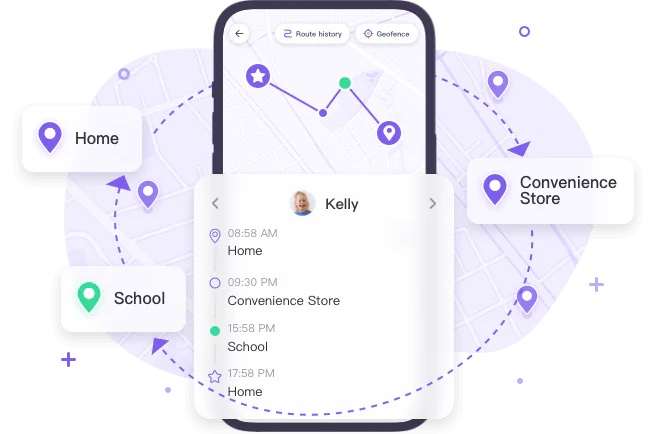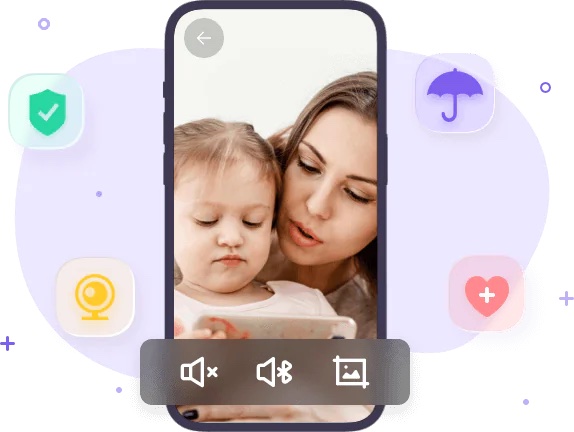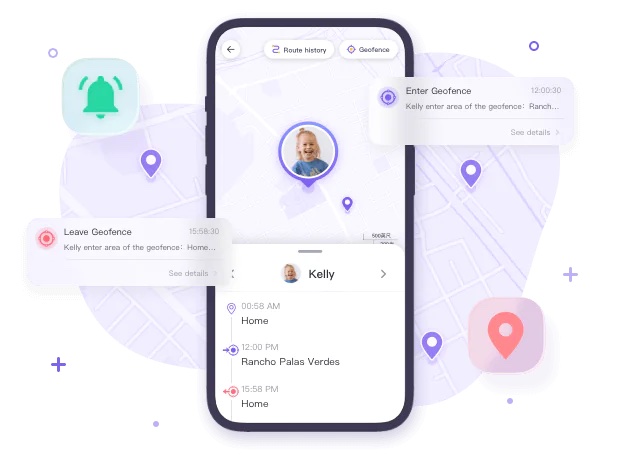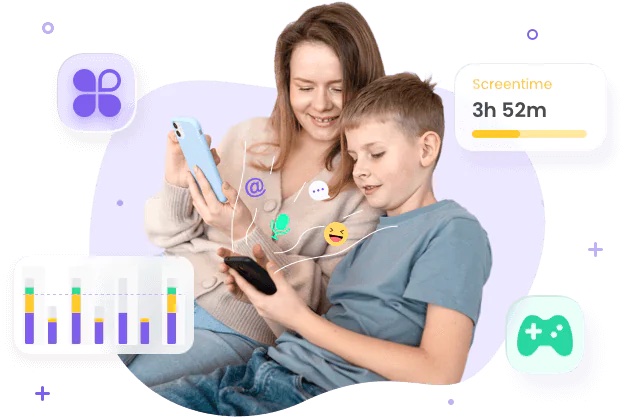Smartphones come equipped with location services that are useful for finding a lost device or using location-based apps. However, you may choose to disable these services for privacy or security reasons. This raises the question: Can my phone still be tracked if location services are turned off? The answer is yes—tracking is still possible through alternative methods, even when location services are disabled.
Disabling location services can help conceal your whereabouts, especially if you want to prevent third parties from monitoring your movements. Nonetheless, other techniques can still reveal your phone’s general location. Read on to learn how.
Part 1: How Location Tracking Works

Location tracking can be a valuable tool, like finding nearby services, but it can also allow others to access your whereabouts, legally or illegally. Several methods enable tracking:
GPS
GPS trackers are portable devices commonly used to monitor vehicle locations. Unlike navigation systems that provide driving directions, GPS trackers record a device’s location and trip history using the Global Navigation Satellite System (GNSS). They employ trilateration, calculating latitude, longitude, elevation, and time by comparing signals from three or more satellites.
GPS trackers are typically powered by a vehicle’s onboard diagnostics (OBD-II) connector, cigarette lighter, accessory socket, or internal battery. The collected data is transmitted to software for analysis. Active trackers provide real-time location updates, while passive trackers store data for later retrieval, making them more affordable.
Wi-Fi Connection
Even without an active Wi-Fi connection, a smartphone with Wi-Fi enabled scans for nearby networks, recording signal strength. When using public Wi-Fi, providers often require consent for location tracking, logging your position when you’re near their hotspots. To protect your privacy, use a Virtual Private Network (VPN), which encrypts your data and hides your IP address and location.
Cell Towers and Cell-Site Simulators
Cell-site simulators, known as stingrays, mimic legitimate cell towers, tricking phones into connecting and revealing their location and identifying data. Often used by law enforcement, stingrays capture data from all nearby phones while targeting a specific device.
With over 300,000 cell towers in the U.S., carriers can estimate your phone’s location by measuring signal travel time to the nearest tower. Cell tower triangulation, which uses data from three towers, provides a more precise location within a 300-meter radius, originally developed to assist 911 operators.
Part 2: Can My Phone Be Tracked If Location Services Are Off?
You might assume disabling location services makes your phone untraceable, but this isn’t entirely true. While turning off location services effectively hides your GPS-based location, other methods, such as cell tower triangulation or Wi-Fi tracking, can still reveal your device’s approximate location, regardless of whether location services are enabled.
Part 3: How to Tell If Your Phone Is Being Tracked
While tracking can serve legitimate purposes, like locating a family member, it can also be exploited by scammers or hackers to steal personal data. Here are four signs your phone might be tracked:
-
Unfamiliar Apps: Unknown apps could be spyware installed without your knowledge.
-
Unexpected Activity: Random reboots, apps opening, or noises during calls/texts may indicate malware running in the background.
-
Battery Drain: Spyware operating continuously can deplete your battery faster than normal. Check your battery health (Settings > Battery > Battery Health on iPhone, or via an app on Android). A high-capacity battery draining quickly may suggest spyware.
-
Overheating: Spyware using GPS or high-processing tasks can cause your phone to overheat, even during light use.
Part 4: How to Prevent Your Phone from Being Tracked
You may want to block tracking for privacy or security reasons. Here are six effective methods:
-
Power Off Your Phone: Turning off your phone stops all network connections, preventing data transmission or GPS tracking. However, this is temporary, as tracking can resume when the device is powered on.
-
Disable Location Services and GPS: Turning off location services restricts apps and services from accessing GPS, Wi-Fi, Bluetooth, or cell tower data to determine your location.
-
Turn Off Wi-Fi in Public: Disabling Wi-Fi prevents your phone from connecting to public networks that may track your location.
-
Review App Permissions: Uninstall apps requesting unnecessary permissions, especially location access for non-essential functions. Check permissions in your phone’s settings and opt for alternatives if needed.
-
Use a VPN: A VPN encrypts your internet activity, masking your IP address and location, even on sites that collect visitor data.
-
Avoid Untrusted Download Sources: Install apps only from official stores (Google Play, Apple App Store) and enable restrictions on third-party app installations. Use antivirus software to detect malicious apps or links.
Part 5: How to Stop Your Carrier from Tracking Your Phone
Carriers can track your location via cell tower data. To limit this:
-
iPhone: Go to Settings > General > About > Diagnostics & Usage, and select Don’t Send to disable carrier data collection.
-
Android: Some carriers use hidden apps like Carrier IQ, which may require advanced steps (e.g., rooting) to remove, as they’re often invisible to users.
Bonus: Using Tracking Responsibly for Child Safety

Privacy is crucial, but tracking can be beneficial when used responsibly, such as ensuring your child’s safety. Parental control apps like FamiLocator Parental Control offer real-time location tracking, even when location services are off, using alternative methods like cell tower triangulation. FamiLocator also monitors online activity, social media, and app usage, helping parents guide kids toward responsible digital habits. Its background monitoring ensures discreet oversight without disrupting the child’s experience.
Conclusion
To answer the question, Can my phone be tracked if location services are off?—yes, it can, through methods like cell tower triangulation, Wi-Fi tracking, or stingrays. We’ve outlined signs of tracking and steps to block it, ensuring your privacy. For parents, tools like FamiLocator Parental Control provide a safe, ethical way to monitor children’s whereabouts and online activity.
FAQs About Phone Tracking
Can a phone be tracked when powered off?
When off, a phone stops transmitting signals, making real-time tracking nearly impossible. However, its last known location may be accessible once it reconnects.
Can a phone be tracked in airplane mode?
Airplane mode disables Wi-Fi and cellular data, but GPS may remain active. Disable GPS separately to prevent tracking.
Can a phone be tracked without a SIM card?
Yes, iOS and Android devices can be tracked via Wi-Fi or GPS, even without a SIM card.
Can a phone be tracked without a data connection?
Yes, GPS and Wi-Fi-based tracking can function without cellular data.
Can you track someone on Google Maps without their knowledge?
No, Google Maps requires explicit location-sharing consent.
Can a phone be tracked by its number alone?
Reverse phone lookup services may provide general location data, but they don’t offer real-time tracking.
How can I tell if someone is tracking me via Find My iPhone?
There’s no direct way to detect this, but changing your Apple ID password prevents unauthorized access.
Does Find My Device work if location services are off?
No, real-time tracking fails, but the last known location may be shown. Remote locking or ringing is possible if the device is online.



